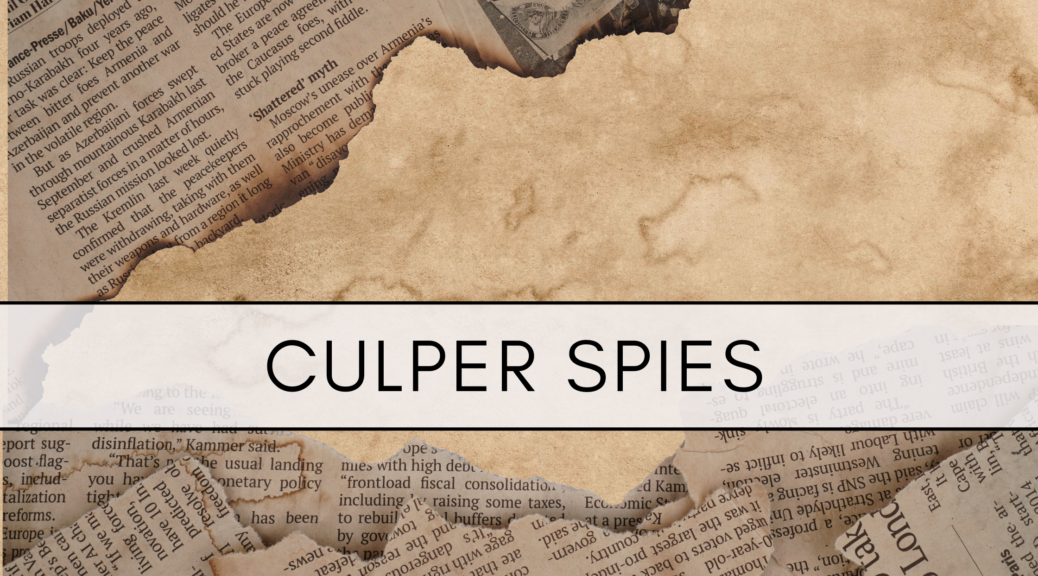
Culper Spies
The men sat in straight-backed chairs around the table, unaware of the numerous ears the walls had. By morning’s end, Riverton would have more information to aid the colonists in the war effort. When Samuel, Riverton’s secret partner in the coffeehouse, entered, he ignored him. Glanced towards the papers with the hidden cipher sitting on the counter. A British officer scrutinized the newssheet. Unnerved, Riverton remained calm, heartbeat steady. Sally called the officer’s name. Oblivious he loved a spy, he smiled and offered his arm. When the newspaper reached General Washington, revealing the message, he activated a new battle plan.

I’m sure you can guess that this week’s genre was historical fiction based on the theme of this story. My action was unearthing a secret letter, and my word was cipher. I drew a complete blank after receiving my prompts. The stare at the screen, sigh deeply, stare out the window and note how quiet the neighborhood is while the kids are at school kinda blank. I checked the clock to see if I could skive off writing in case it might be lunch time. It was not.
Thus, I set off down the research trail. Research can go one of two ways for me: total overwhelm or sucked in too deep. Both of which happened. First, I got all caught up in the cipher wheel that Thomas Jefferson invented. It led me to wondering how on earth the coded messages slipped through the French post? I’m guessing he gave them an absolute headache hiding only a few words every two lines or something crazy. From there I ended up at the Library of Congress reading pages of letters he wrote to Lewis & Clark, where he apparently came up with a new code should they need to use it. There’s no proof they did, which isn’t that shocking when you consider all the obstacles the party faced while exploring said new land with their secure French passports. Sorry, that was a line from one of his letters. Also, can I just say that, unless he tried to squeeze extra words in, Jefferson had impeccable handwriting?
Somehow, I stumbled across an article from History.com all about the various ciphers used through history. Most of which I was reasonably familiar with until I stumbled upon the information about the Choctaw men who helped send coded messages during World War 1. Maybe I slept through that chapter in history, doubtful because I always enjoyed history, but somehow I’d never heard this before. I was familiar with the Code Talkers from World War II, but had never heard of their help during World War I. I’ll admit, I had a powerful urge to tell their story. The Native Americans’ oppression, stemming mostly from the very thing aided the Allies, felt too immense to ignore.
With only a single photo, scraps of information, and limited to a hundred words, I didn’t want to misconstrue their story. I laid it aside, for now, and reverted to the Revolutionary War, a time frame I’m far more familiar with.
History majors, I know you will find flaws in my story. Just like the improbable meeting of all three spies, but remember, my tale mixes history and fiction.
